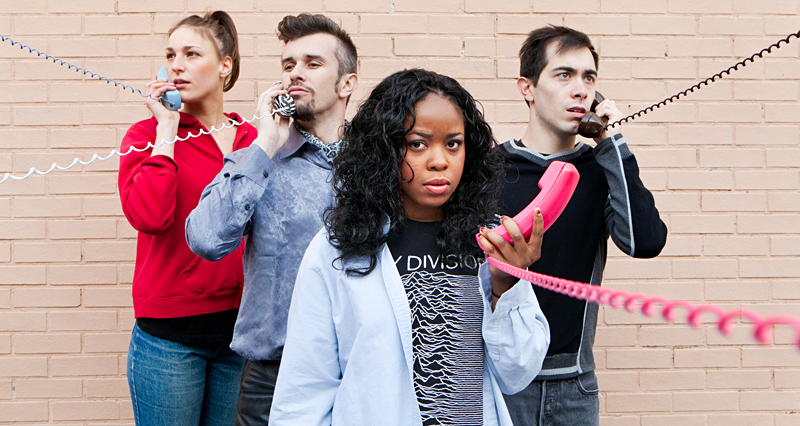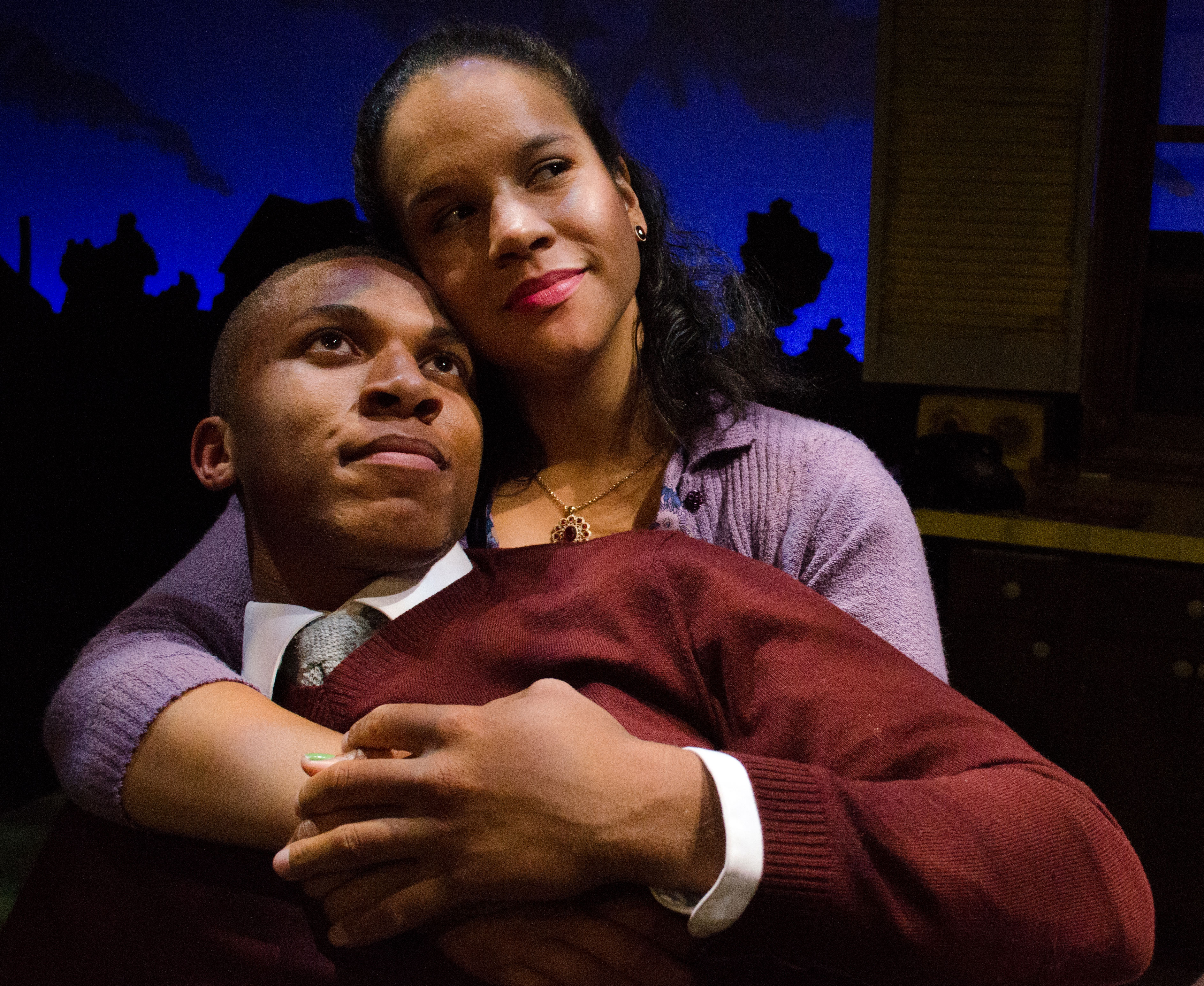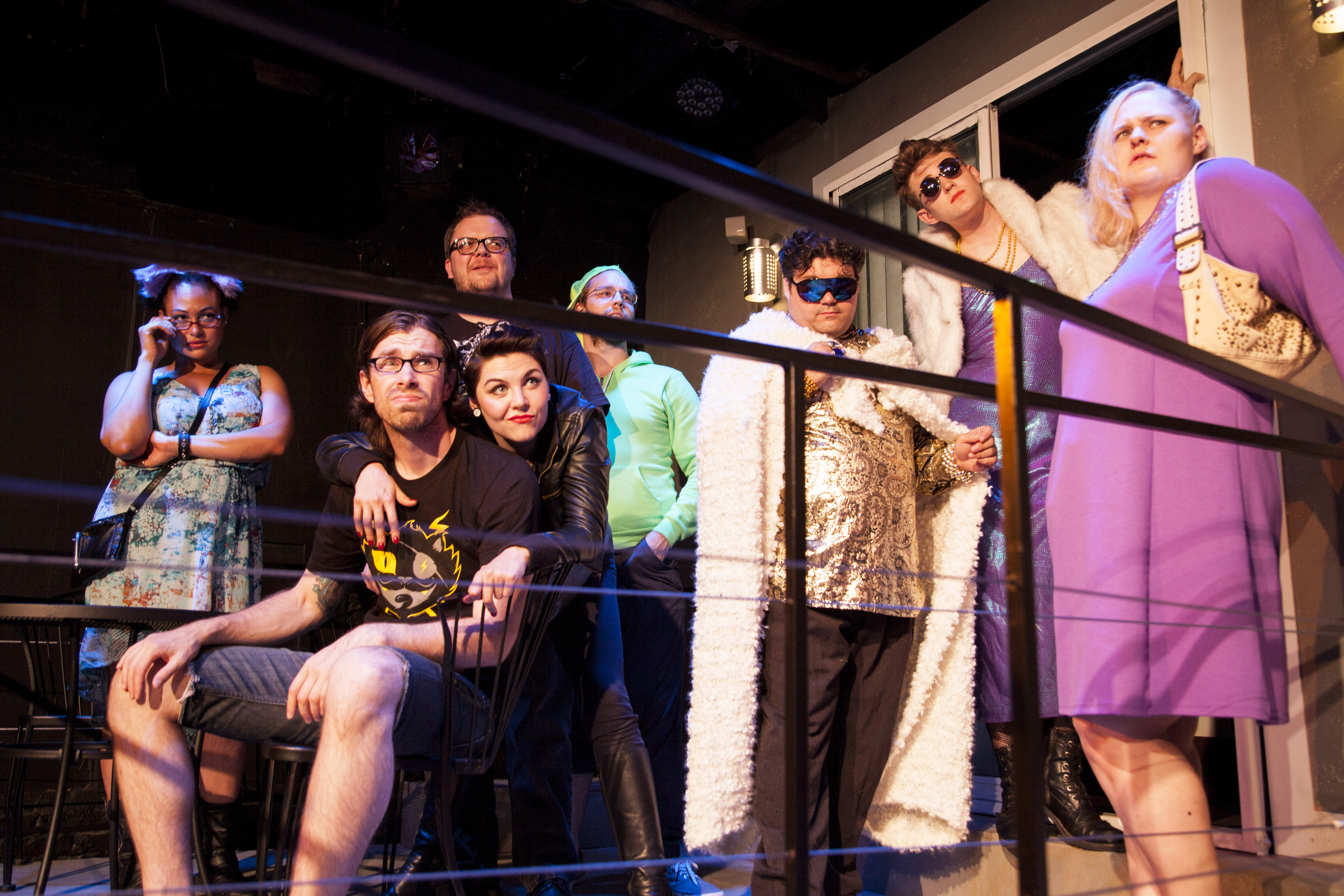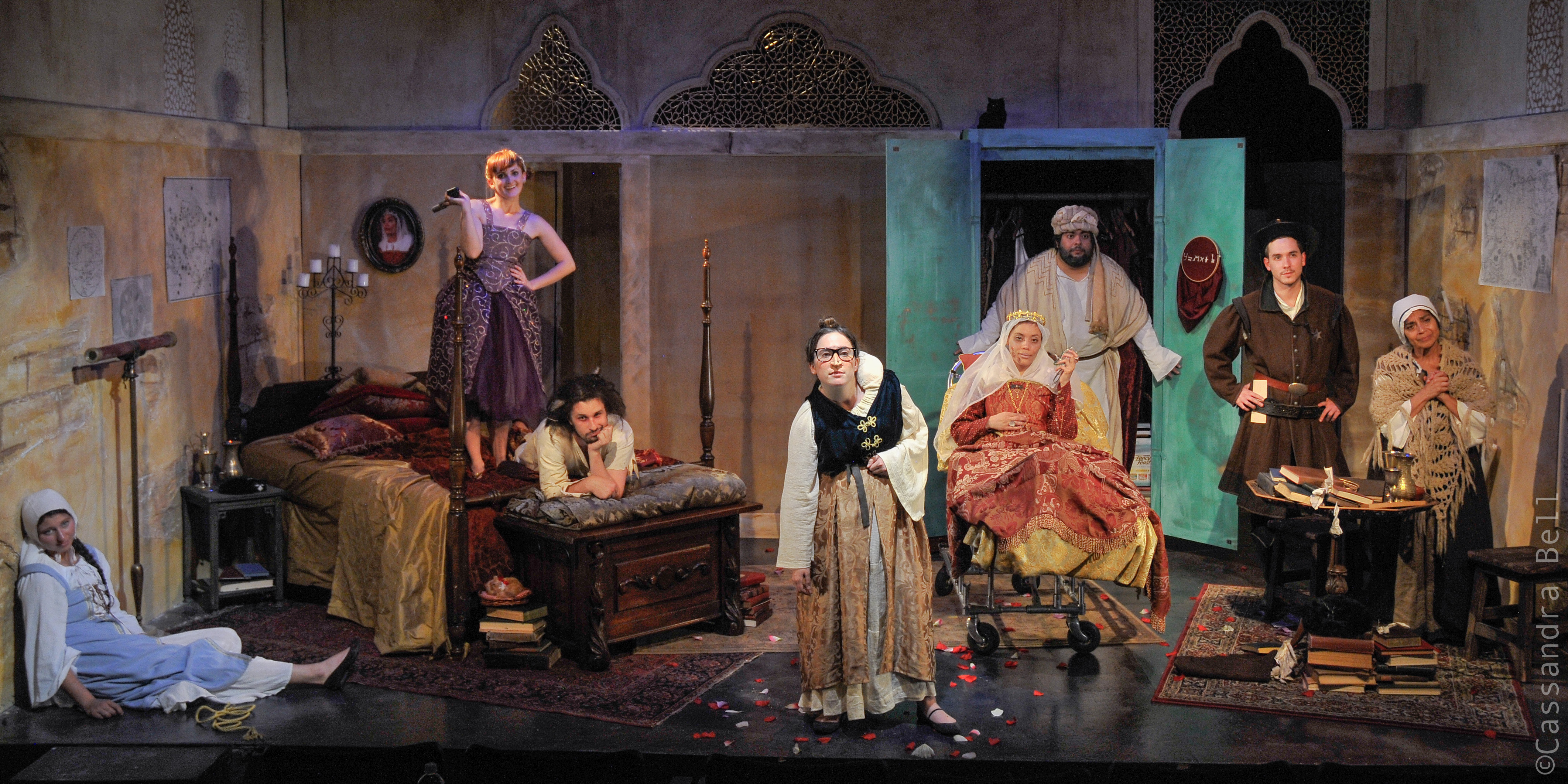Camp is not just a summer destination, as the talented WET ensemble proves all too painfully in The Callers, the troupe’s first attempt at an original musical (leaving aside Robopop, its 2010 homage to ’80s music videos).
Remember those episodes of Glee and Buffy the Vampire Slayer where the show’s creators scratched that itch to thrill us with their hidden talent for staging a full musical? Turns out there’s a big gulf between Broadway dreams and reality. That’s the case with The Callers, which features a threadbare book and lyrics by Ella Dorband and Ali el-Gasseir and a trove of promising but often unrealized tunes from composer Richard Andriessen. (Andriessen and el-Gasseir also appear in their show; Andrew Russell directs.)
As always, WET’s clever scenic design takes a thrift-store budget and concocts a set that looks as though every element ought to be just as it is. Not only is three-quarters of the room festooned with every color and cord length of Princess phone imaginable, but designer Andrea Bryn Bush has decoupaged the floor with pages from a phone book. It’s a brilliant idea, well in keeping with what should be the whimsy of what unfolds onstage.
Instead, the show is capsized at the outset by a plot leakier than the Costa Concordia. As the lights come up, two phone-sex workers are chatting. Emma (Kate Sumpter) is schooling Bea (Claudine Mboligikpelani Nako) on how to make their clientele believe they’re hot-to-trot tartlets, because every minute they stay connected means money in the bank. Deceiving callers is their business. How then does it make any sense whatsoever that Bea, at Emma’s suggestion, calls and falls for a pair of faux psychics at the other end of their own telephone line? Viktor (el-Gasseir) and Kevin (Andriessen) have their own mentor/apprentice relationship, and although Viktor warns his young charge not to get attached to any of his clients, he falls for Bea’s tale of lost love and begins to woo her by convincing her he can channel her dead boyfriend. In the end, Bea finds the love she seeks, but how she gets there runs completely counter to the tone of the rest of the show.
The text veers wildly from doe-eyed innocence to comedic shtick to a closing duet that has to be seen to be believed. Elsewhere, especially in the ensemble numbers, Andriessen displays an ear for pop tunecraft and is a nimble, energetic performer. In fact, WET seldom gets a complaint from me about its casts; even with material this loopy, they’re committed to deliver each line and melody as though penned by a master.
When all is said and done, The Callers will remind you of what happens when actors decide they’re musicians. (Think of Russell Crowe’s band. No, don’t.) Does that mean they shouldn’t try? Of course not. But for God’s sake, be aware that success in one genre doesn’t guarantee facility with another.








